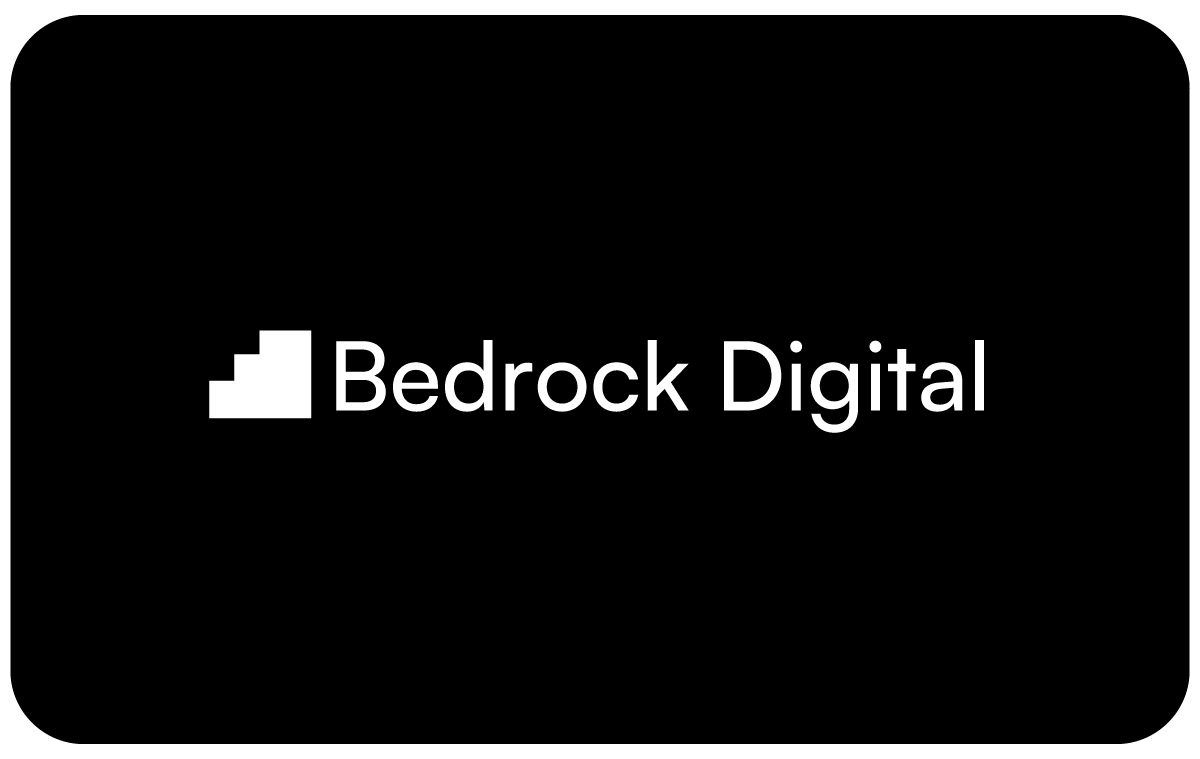In the digital age, the power of social media is undeniable. It has transformed the way businesses connect with their audience.
But with so many platforms available, how do you choose the right one for your business?
This guide will help you navigate the world of social media platforms. We’ll explore the top platforms for businesses and discuss their unique features.
We’ll delve into the latest social media trends. These trends can shape your marketing strategy and help you stay ahead of the competition.
We’ll also provide insights on how to leverage these platforms for business growth. From creating engaging content to analyzing metrics, we’ve got you covered.
Whether you’re a small business owner or a marketing professional, this guide is for you. It’s designed to help you make informed decisions about your social media marketing efforts.
So, are you ready to boost your online presence? Let’s dive into the world of social media platforms for businesses.
Understanding Social Media Platforms
Social media platforms are digital channels where users share content and interact with others. They play a crucial role in business marketing today. These platforms enable businesses to reach a global audience, enhancing visibility and brand engagement.
Each social media platform has unique characteristics. For example, some focus on visual content, while others excel in real-time updates. Understanding these differences helps businesses tailor their strategies effectively. Knowing what works best for each platform is key to success.
Using social media platforms is more than just posting updates. It’s about creating conversations and building communities. Businesses can showcase their brand personality and foster loyalty through genuine engagement. Strategic use of these platforms can lead to significant business growth and development.
The Importance of Social Media Marketing
Bedrock Digital’s Expertise in Social Media Marketing
At Bedrock Digital, we understand that choosing the right social media platform is essential for business success. Our team specializes in crafting data-driven strategies that align with each platform’s strengths, whether it’s engaging audiences on Facebook, boosting brand awareness on Instagram, or driving B2B leads through LinkedIn. By leveraging platform-specific tactics, we help businesses maximize their reach and create meaningful connections with their target audience.
Social media marketing is vital in today’s digital landscape. Businesses rely on it to increase brand awareness and build relationships with customers. The ability to connect with a vast audience is unparalleled.
Moreover, social media marketing offers cost-effective advertising solutions. Businesses of any size can promote their offerings without a hefty budget. This democratizes marketing, allowing small businesses to compete with larger brands.
Additionally, social media enables real-time feedback and interaction. Businesses gain valuable insights from customer comments and reactions. This information can inform better marketing strategies and foster continuous improvement in services and products.
We’ll delve into the latest social media marketing strategies to help businesses build a strong online presence. A well-planned strategy ensures that every post, campaign, and interaction aligns with your business goals.
Top Social Media Platforms for Business Marketing
Businesses have a plethora of social media platforms to choose from. Each platform offers distinct features tailored to different needs. Selecting the right one can significantly impact a business’s success.
To maximize effectiveness, understanding each platform’s strengths is crucial. Platforms vary in user demographics, content formats, and marketing tools. Let’s explore the top social media platforms for business marketing and how they can benefit your business.
1. Facebook for Businesses
Facebook is a leading social media platform for businesses. Its massive user base offers vast reach potential. Businesses can engage with diverse demographics, from teens to seniors.
Key features include Facebook Pages and Groups, which are integral for business engagement. Ads Manager offers targeting options to reach specific audiences. The platform also supports e-commerce integration through Facebook Shops.
Benefits of using Facebook for business include:
- Extensive advertising options
- Robust analytics through Facebook Insights
- Strong community-building capabilities
These aspects make Facebook a go-to platform for businesses aiming to establish an online presence.
2. Instagram for Brand Engagement
Instagram has emerged as a powerful tool for brand engagement. Its visually-driven interface is perfect for showcasing products. Businesses can leverage vibrant images and videos to attract audiences.
Instagram stories and reels allow for creative storytelling. These features cater to short-form content that captivates viewers’ attention. Brands can build community engagement through direct messaging and comments.
Benefits of using Instagram include:
- High engagement rates on posts
- Integration of shopping features for direct sales
- Influencer partnerships to expand reach
For brands focusing on aesthetics and storytelling, Instagram is unmatched.
3. LinkedIn for Professional Networking
LinkedIn is essential for businesses in the B2B sector. It fosters professional networking and industry engagement. Businesses can connect with decision-makers, industry peers, and potential clients.
The platform offers advanced tools for recruiting talent. LinkedIn posts and articles boost thought leadership and industry presence. LinkedIn Advertising allows for targeting based on industry, role, and company size.
Benefits of using LinkedIn include:
- Targeted B2B marketing opportunities
- Network expansion with professionals
- Platform for corporate content and insights
LinkedIn is ideal for companies looking to establish credibility and expand their professional network.
4. Twitter for Real-Time Communication
Twitter excels in real-time communication. It’s a platform for quick updates, news sharing, and customer interaction. Businesses use it to engage customers and manage public relations.
Hashtags and trending topics are pivotal for gaining visibility. Tweets with trending hashtags can reach a broader audience. Twitter also offers advertising through promoted tweets and accounts.
Benefits of using Twitter include:
- Instant interaction with audiences
- Promotion of timely updates and content
- Monitoring brand sentiment through mentions
Businesses seeking to maintain dynamic interactions will find Twitter invaluable.
5. YouTube for Video Content Marketing
YouTube is the go-to platform for video marketing. Its vast user base consumes millions of hours of video daily. Businesses can create video content to educate, entertain, or inform audiences.
Video tutorials, product reviews, and advertisements thrive here. YouTube’s analytics provide insights into audience demographics and engagement. Monetization options include ads, memberships, and merchandise shelf.
Benefits of using YouTube include:
- Extensive reach through compelling video content
- Opportunities for income through ads and subscriptions
- Engagement through comments and live streaming
For businesses prioritizing video content, YouTube is indispensable.
6. Pinterest for Visual Discovery
Pinterest is a haven for visual discovery and inspiration. It acts like a virtual mood board where users save ideas. Businesses use it to visually showcase products and drive traffic to their websites.
Images and infographics perform well, enhancing brand visibility. Pinterest Analytics provides insights into popular content and audience behavior. Promoted Pins help increase visibility among targeted audiences.
Benefits of using Pinterest include:
- High referral traffic to websites
- Long lifespan of pins compared to other posts
- Target audience based on interests and demographics
Pinterest suits businesses with strong visual content aimed at driving website visits.
7. TikTok for Short-Form Video Virality
TikTok has revolutionized content consumption with short-form videos. Its algorithm promotes content virality based on engagement. Businesses can reach younger demographics with creative and relatable videos.
Trends and challenges drive user participation and content creation. Brands can collaborate with TikTok influencers to boost visibility. Advertising options include in-feed ads and brand takeovers.
Benefits of using TikTok include:
- Rapidly growing user engagement
- Diverse content creation opportunities
- Potential for viral marketing campaigns
Businesses aiming to capture younger audiences with innovative content will find TikTok valuable.
Emerging Social Media Trends for Businesses
Staying ahead of social media trends is vital for businesses. Trends evolve rapidly, influencing how platforms are used for marketing. Understanding these developments can offer a competitive edge.
One trend is the rise of ephemeral content. Platforms like Instagram and Snapchat popularize short-lived stories. This format boosts engagement with its urgency and personal touch.
The integration of e-commerce with social media is another trend. Features like Instagram Shopping and Facebook Marketplace enable direct sales. They transform social media platforms into full-fledged shopping destinations.
User-generated content is gaining traction. Brands encourage customers to share experiences, increasing authenticity. This approach not only builds community but also fosters trust and loyalty.
Here are key trends businesses should consider:
- Ephemeral content to drive engagement
- Enhanced e-commerce features for direct selling
- Prioritizing user-generated content for authenticity
- Increased use of social listening tools
- Emphasis on personalization and artificial intelligence
Artificial intelligence has also made significant strides. AI tools help personalize content, predict trends, and refine strategies. Leveraging AI empowers businesses to deliver tailored experiences that resonate with audiences.
Keeping abreast of these trends ensures that businesses can adapt and thrive in the dynamic social media landscape. As platforms evolve, understanding and leveraging these trends is essential for sustained growth.
Crafting a Successful Social Media Marketing Strategy
A well-crafted social media strategy is essential for business growth. It aligns with overall goals, ensuring each action has a purpose. Start by defining clear objectives that are specific and measurable.
Research your target audience thoroughly. Understanding demographics and preferences guides content creation. Tailor your messaging and choose the platforms where your audience is most active.
Creating a content calendar is crucial for consistency. It organizes your posting schedule and ensures timely, relevant content. A well-planned calendar keeps your team on track and your audience engaged.
Consider these elements when crafting your strategy:
- Set clear, achievable goals
- Know your audience’s preferences
- Choose appropriate platforms
- Maintain a consistent posting schedule
- Monitor and adapt based on performance
Regularly review your strategy’s performance. Analytics provide insights into what’s working and what’s not. Be ready to adapt and refine your approach based on these findings.
Adopting a strategic mindset improves social media efficiency and effectiveness. It’s about making data-informed decisions and being agile in response to changes.
Tailored Strategies for Business Growth
Social media marketing isn’t just about posting content—it’s about fostering relationships and driving real business results. At Bedrock Digital, we tailor social media strategies to fit each client’s unique needs, focusing on audience engagement, brand storytelling, and conversion-driven campaigns. We analyze performance metrics, optimize ad spend, and ensure that every post and campaign contributes to overall business growth.
Measuring Success: Analytics and Metrics
Understanding social media performance is vital for ongoing success. Analytics and metrics help you track progress and adjust strategies. They offer insights into what resonates with your audience.
Focus on key performance indicators (KPIs) to measure success. These might include engagement rates, follower growth, or conversion rates. Each KPI should align with your overall business objectives.
Regular analysis helps pinpoint areas needing improvement. It guides you in fine-tuning content and delivery methods. Use these insights to stay ahead of social media trends and competitors.
Consider tracking these essential metrics:
- Engagement (likes, shares, comments)
- Reach and impressions
- Click-through rates (CTR)
- Conversion rates
- Audience demographics
Embrace the data-driven decision-making process. It empowers you to optimize your social media marketing efforts. Consistent evaluation and adjustment ensure your strategies remain effective and relevant.
Case Studies: Success Stories on Social Media
Social media offers a wealth of opportunities for businesses to shine. Consider the case of a small bakery that quadrupled its customer base. Through engaging Instagram reels, the bakery showcased its delectable creations and the process behind them.
A tech startup leveraged LinkedIn to connect with industry influencers. By sharing insightful articles and joining relevant groups, the startup positioned itself as a thought leader. This approach significantly boosted its brand credibility and generated valuable business leads.
Finally, look at a fashion retailer that saw a surge in sales through Twitter promotions. Using creative hashtags and real-time customer engagement, the retailer enhanced brand visibility. These success stories illustrate how an effective social media strategy can drive impressive results for businesses across industries.
Additionally, staying updated with industry insights is key to success. Platforms like Social Media Today provide expert analysis and trends to keep you ahead of the competition.
Choosing the Right Social Media Platform for Your Business
Selecting the ideal social media platform is crucial for business success. Each social media platform offers unique features catering to different audiences. Identifying where your target audience spends most of their time is the first step.
Evaluate your business goals to align them with the platforms’ capabilities. For instance, a B2B company might find LinkedIn more effective, while Instagram could better serve an apparel brand. Understanding these dynamics ensures your marketing efforts yield maximum returns.
Consider these factors when choosing a social media platform:
- Audience demographics: Match platform demographics with your target audience.
- Content type: Choose platforms that align with your content strategy.
- Engagement options: Evaluate how easily you can interact with your audience.
- Advertising opportunities: Consider platforms that offer robust ad targeting options.
By making informed choices, you can effectively harness the power of social media to achieve your business objectives.
Staying Ahead with Industry Trends
With social media constantly evolving, businesses must stay updated with the latest trends to remain competitive. Bedrock Digital keeps a pulse on emerging trends such as short-form video content, AI-driven marketing, and social commerce. By integrating these innovations into our clients’ social media strategies, we ensure they stay ahead of the curve, attract more customers, and maintain a strong online presence in their industry.
Conclusion: The Future of Social Media Platforms for Businesses
The future of social media platforms for businesses holds exciting prospects. Innovation and technology will drive new opportunities for engagement. As platforms evolve, businesses must adapt to stay relevant in the digital realm.
Understanding emerging social media trends will be crucial for future growth. Social media platforms that leverage AI and AR technologies can offer interactive experiences. Businesses should invest in platforms that align with their evolving goals to remain competitive. Remaining adaptable and informed about platform updates will be key to harnessing social media’s full potential for success.




